Business
The real costs of closing the economy and the need for two approaches
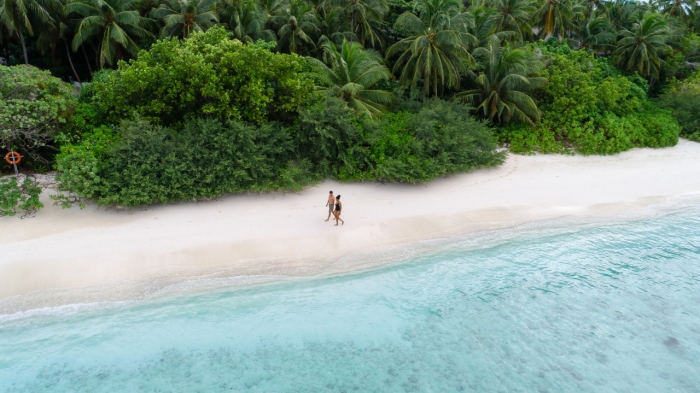
By Sonu Shivdasani
Thank you for all your replies to the opinion article I shared a few weeks ago, ‘How Maldivian Tourism can Survive Covid-19’. I appreciate all the messages of support. However, I realise that some readers misconstrued the points I was making and judged the piece as elitist. Whilst the top 30 resorts in the country by average rate account for a majority of the country’s tourism revenues; this was not my intention at all.
I do not believe the government should only allow wealthy tourists with private jets to visit the Maldives. My point is that permitting smaller planes to land in regional airports is the easiest way to begin the process of reopening the tourism economy whilst still keeping Male safe from any risk of contagion.
That op-ed was also driven by the following considerations:
- About 90 per cent of the economic activity in the Maldives is driven by the tourism industry, all of which takes place on islands completely separated from Male.
- There are two aspects to the Maldives that are relevant to this debate; Male, the capital of the country is one of the most densely populated places on the planet and thus at risk should the capital become infected. However, the rest of the Maldives is naturally isolated into more than 1,100 separate islands and this is where the tourism wealth is generated.
- The loss and damage to the economy is not linear, but exponential – the costs of closing resorts grow at an ever-increasing pace (more about this later).
- Various countries are at different stages of the Covid-19 bell curve. China has gone through the curve and largely recovered. South Korea is getting there. At present, these are the only two big markets that are largely Covid-19 free. The traditional European markets are at least 60 days behind China and South Korea.
- Given how important tourism is to the economy, the Maldives cannot wait until all its major markets are Covid-19 free before reopening the border. The government must begin figuring out how to reopen to countries that have overcome the virus.
- That said, the entire Maldivian tourism industry will not survive on Chinese and Korean guests alone. The Maldives will, at some point in the not-too-distant future, need to open up to other markets, which is why we need to work out how to do it in a manner that is safe and does not put the country at risk.
- Hence my suggestion to start welcoming smaller planes, such as private jets, and small commercial aircraft such as A320s and 737s that hold around 120 passengers. Limited numbers of passengers can be more easily tested for Covid-19 upon arrival, compared to hundreds and hundreds of people disembarking big planes like 777s. Qatar and Etihad Airways, which both serve the Maldives, have an extensive fleet of smaller planes. The regional airports in the Maldives can also accommodate these smaller aircraft. Using regional airports would avoid any risk of contagion in Male, which is surely paramount given its population density.
The importance of tourism and the urgent need to revive it
As I mentioned above, about 90 per cent of the Maldivian economy is dependent on tourism. According to the World Bank, in 1980 the Maldives was amongst the poorest 20 countries in the world. Today, after 40 years of tourism, the Maldives is a middle-income country with the highest per capita GDP in South Asia where the life expectancy and literacy rates are 74 years and 76 per cent respectively. Tourism has made the Maldives prosperous. Tourism is the lifeblood of the Maldivian economy, but it is imperilled by the Covid-19 shutdown.
Moreover, the damage the shut-down is doing to the industry is not linear, but exponential. At the moment, most resorts have closed, and many have slashed costs, including wages — but resorts are not, yet, going bankrupt.
This is because resort companies usually have enough resources, cash in the bank, and goodwill with their creditors to absorb a major shock, as long as the crisis doesn’t last too long. Resorts with very healthy bank accounts might even be able to survive a few months without any tourists.
However, as the weeks and months pass with the border still shut, things start to get ugly. Resort companies run out of cash, their investors lose confidence and refuse to extend new lines of credit, and firms eventually go out of business. A bankrupt resort cannot pay its outstanding bills, which in turn threatens to bankrupt its suppliers. Each resort that goes under also lays off hundreds of staff, who then don’t have money to spend in shops, restaurants, and cafes, which in turn suffer. As this scenario plays out in dozens of resorts and companies up and down the country, before long you end up with an economic meltdown.
To prevent such a crash from taking place, it is vital that the border is reopened as soon as possible.
The government has handled the Covid-19 crisis incredibly well so far. Even as authorities grapple with the recent spike of cases in Male, closing the borders until there is a Covid-19 cure, or the whole world has eradicated the virus (which could take a year or two), is not a viable option for the Maldives because it would kill the tourism industry, and push tens of thousands of people into poverty. It is important for the government to find pragmatic ways to reopen, without placing the country at unnecessary risk of a coronavirus outbreak.
In fact, if the Maldives reopens and engages in bilateral discussions with certain key markets soon, it can expect a bumper summer. Asia Pacific is the largest regional travel market. In fact, Chinese travel accounts for greater than 20 per cent of global travel at US$ 270 billion. Traditionally the Chinese, the Indians, the Russians and those in the Middle East head to Europe and North America for the summer. At present, these summer holiday markets, remain shut. With few destinations to choose from, tourists will likely flock to the Maldives. We will even see strong demand coming from Europeans. Europeans are fed up of the lockdown and would like to escape. They are concerned about traveling to other destinations in Europe where Covid-19 still exists. There are attracted by the one island, one resort aspect of the Maldives that renders the islands stronger fortresses against Covid-19.
At Soneva, booking inquiries suggest July and August 2020 could even be better than summer 2019. We are receiving significant numbers of booking requests, and guests are asking for longer stays – often up to a month.
However, the governments of these key potential markets to the Maldives have currently closed their borders for international travel. It will require a proactive approach and extensive government to government discussions in order to reopen travel. It will not be easy. We need to start now, and establish standards of hygiene, testing protocols and other criteria that will be acceptable to foreign governments.
Testing, testing, and testing
The irony with Covid-19 is that because it is much less virulent than other past viruses, it has managed to wreak more damage than past epidemics and bring the world to a halt. Because it is so mild, it has become much more contagious as people that are infected with the virus show no symptoms at all. Apart from devising better ways to treat people who are infected, the main approach to overcoming the virus is to test extensively.
There are many Covid-19 tests available that use decades old technology called reverse transcription polymerase chain reaction (RT-PCR). These tests can yield accurate results in the earliest days of a Covid-19 infection. The Foundation for Innovative New Diagnostics (FIND) headquartered in Geneva, Switzerland is evaluating 300 such tests. Their first evaluations have shown that some of these tests are 99 per cent accurate. The test units themselves are cheap. However, a machine and hospital technician is required to establish the results of the test. In South Korea, results are available in as little as 12 hours. Cheap and accurate, good quality PCR tests are available today.
Scientists are also developing tests based on immunoassays. Immunoassays offer an alternative to PCR tests. One immunoassay, an antigen-based test, detects the presence of protein structures, called spikes that are unique to the virus. Antigen-based tests require no specialised personnel or large instruments. They are relatively inexpensive and like a pregnancy test, can deliver results in minutes. It is my understanding that certification and production of these tests are still a few months away. In the interim, PCR-based tests are a good stop gap solution.
The need for two separate approaches
National prosperity and wellbeing are dependent upon the government taking two separate approaches: reopening borders to tourism in the islands and atolls where there are few coronavirus cases; and strictly protecting Male from community spread. Because of the capital’s population density, the virus can spread rapidly in the city, so it must be given extra protection.
However, many Maldivians are now without either jobs or pay. The government has announced support for people who have lost their jobs. This is an important and worthy measure of support. But because the Maldivian economy is so dependent on foreign tourism, it will not stimulate the economy much in of itself.
The US government is paying furloughed employees 100 per cent of their lost salary; in the UK it is 80 per cent of lost salary. This is easy to do for the United States and Britain because they can print US dollars and Sterling Pounds, and not suffer from a currency devaluation. Unfortunately, the Maldives government may not have such flexibility because of the relative size of the economy. So, the principal way that the government can support the people is to encourage the reemployment of Maldivians, so they can pay their bills and meet their financial commitments.
The real drivers of wealth in the Maldives are the resorts, which attract millions of tourists, who spend lots of hard currency. To stimulate the economy, one needs to allow, and attract tourists back to the Maldives. Reopening the borders in a safe manner, with testing on arrival, is the best way. There is a clear separation between the islands that generate the tourisms dollars, and Male. So, rebuilding the tourism economy and protecting Male are not mutually exclusive.
The government should be praised for its handling of the Covid-19 crisis thus far. Let us hope they can reopen the border shortly, before the shutdown causes irreversible damage to the industry that is the lifeblood of the economy, and the prosperity of the people.
Editor’s Note: This op-ed was originally published on Linkedin by Sonu Shivdasani. Sonu is the founder and CEO of Soneva, which owns luxury resorts Soneva Fushi and Soneva Jani in the Maldives, and Soneva Kiri in Thailand.
Business
Feydhoo Hall opens at dusitD2 Feydhoo Maldives as new event space
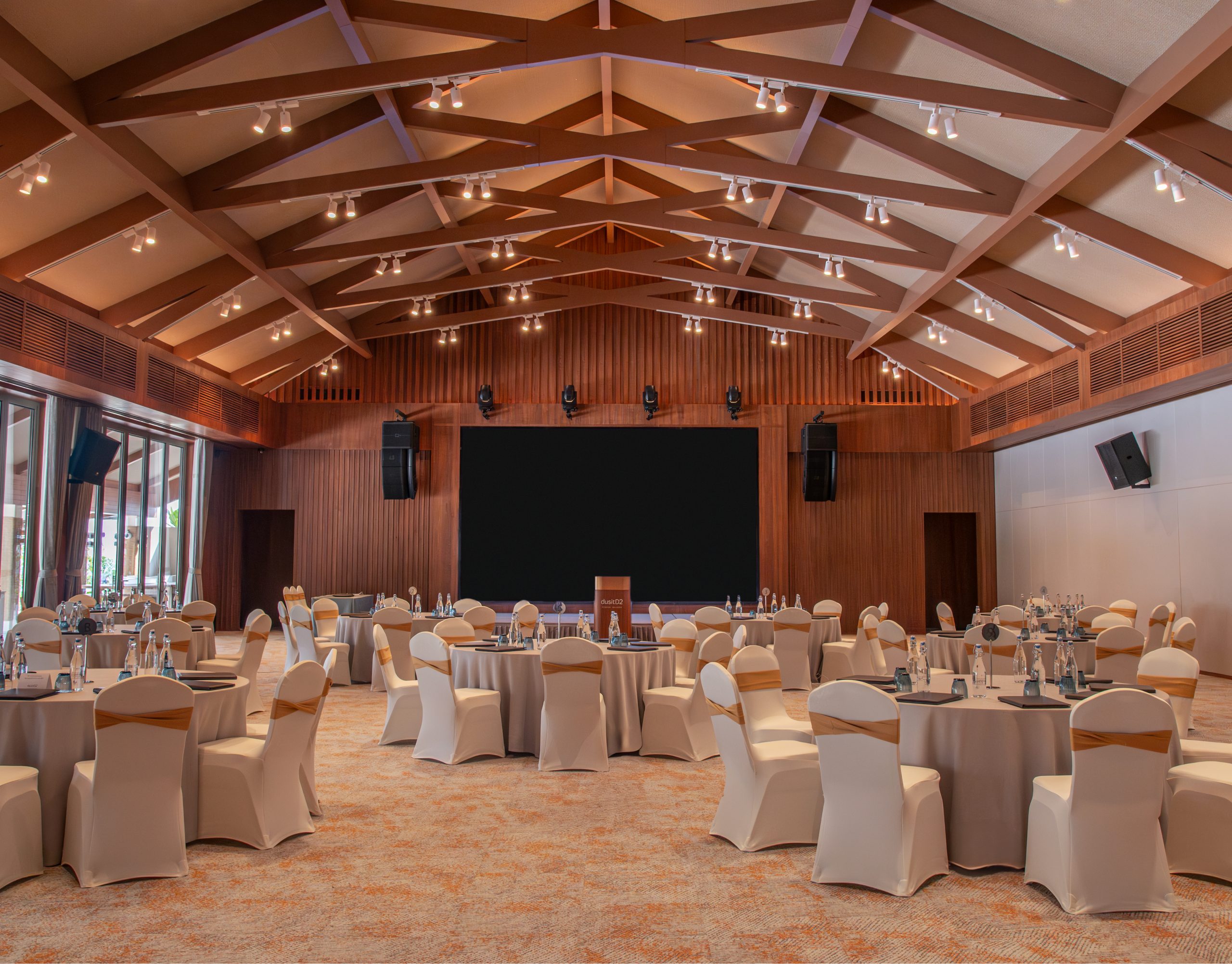
Dusit International, one of Thailand’s leading hotel and property development companies, has announced the opening of Feydhoo Hall, a landmark event venue at dusitD2 Feydhoo Maldives, redefining the possibilities for meetings, celebrations, and destination events in the Maldives.
Designed to bring scale, flexibility, and creativity to island gatherings, Feydhoo Hall represents a bold step forward in positioning the Maldives as a dynamic destination for conferences, weddings, and large-scale social occasions.
Feydhoo Hall offers a versatile event complex designed to accommodate a wide range of gatherings, from corporate meetings and conferences to weddings and social celebrations.
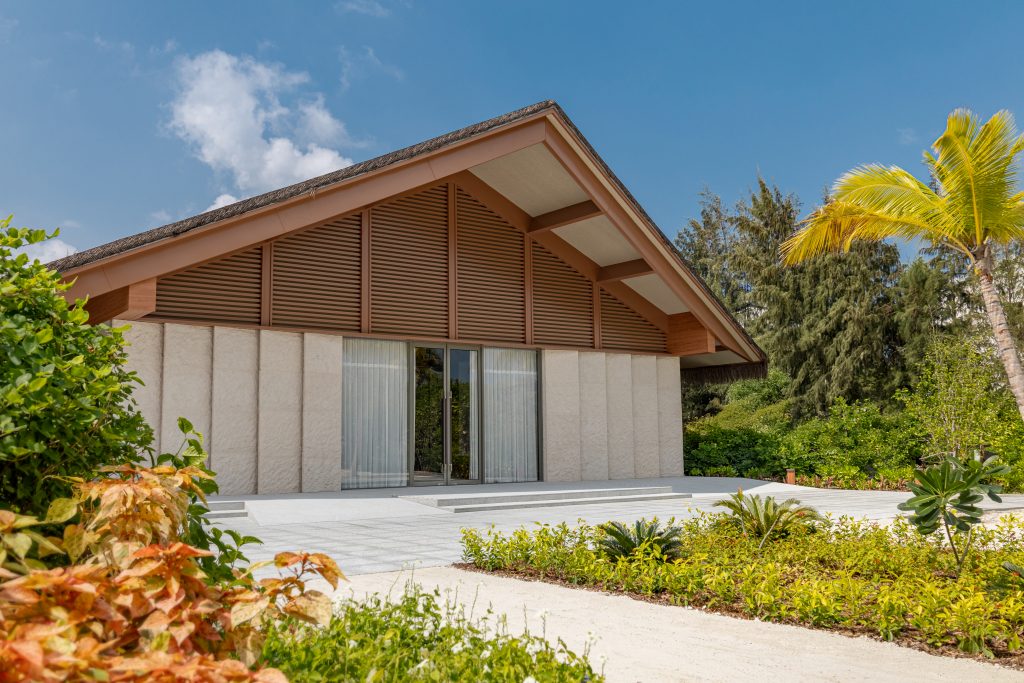
At its core is the 390 sqm Main Hall, capable of hosting:
- Up to 300 guests in theatre-style setup
- Up to 240 guests for dining and banquet-style events
- Up to 200 guests for cocktail-style receptions
- Up to 144 guests in cluster-round configuration
Enhancing the flexibility of the venue are additional dedicated spaces, including:
- A 110 sqm Veranda Terrace, ideal for welcome receptions, breakout sessions, and pre-event gatherings, accommodating up to 100 guests for cocktail-style events.
- A spacious 1,000 sqm Lawn Space, perfect for large-scale outdoor celebrations, destination weddings, and open-air events, accommodating up to 400 guests for cocktail receptions and up to 350 guests for dining setups.
- The 55 sqm Ekugai Meeting Room, designed for smaller meetings and executive sessions, accommodating up to 30 guests in theatre or dining setup and 24 guests in cluster-round format.
Together, these integrated spaces create a seamless indoor-outdoor event experience, allowing planners to design dynamic and personalised event journeys.
True to the dusitD2 brand’s lifestyle-driven philosophy, Feydhoo Hall introduces a fresh approach to meetings and events — where productivity meets creativity in an inspiring island setting.
The venue offers flexible meeting formats designed to suit different event needs, including:
- Half-Day Meeting Package (4 hours) — ideal for focused sessions, executive meetings, and creative workshops.
- Full-Day Meeting Package (8 hours) — designed for immersive conferences, extended workshops, and large-scale corporate gatherings.
These thoughtfully structured packages provide planners with the flexibility to create impactful and seamless experiences, whether hosting intimate strategy sessions or dynamic full-day events.
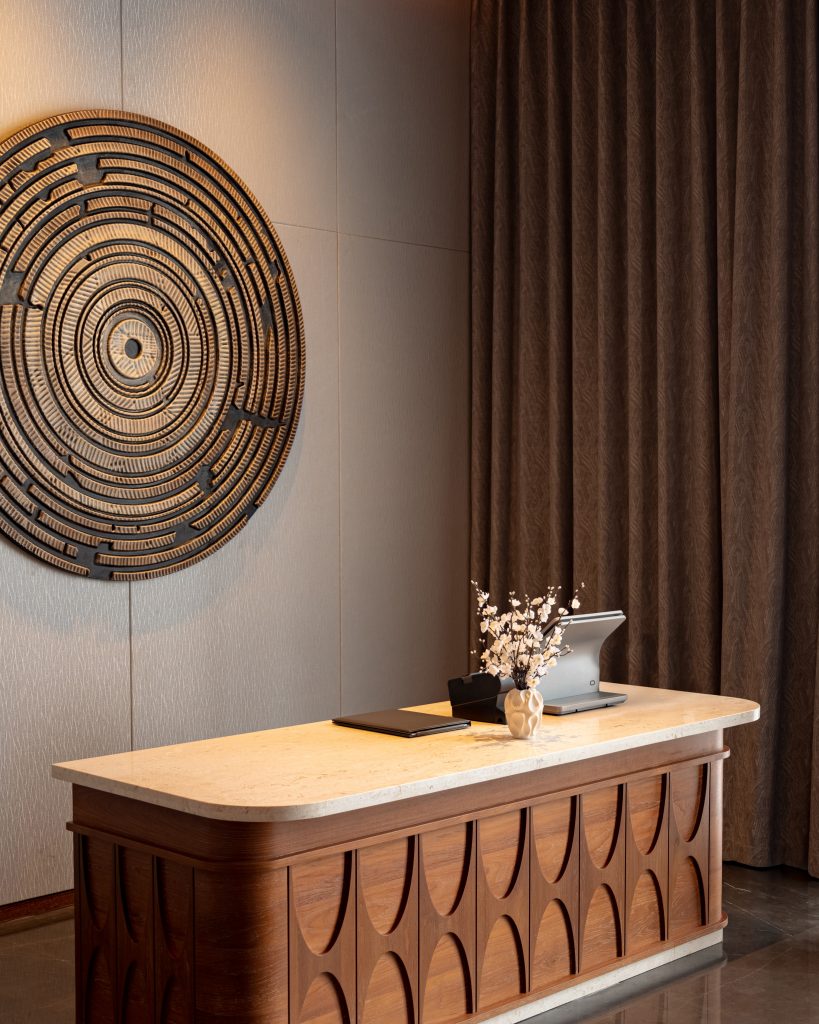
Located just seven minutes by speedboat from Velana International Airport, dusitD2 Feydhoo Maldives combines accessibility with vibrant lifestyle energy, offering event planners and guests a rare balance between convenience and tropical escape.
With the introduction of Feydhoo Hall, the resort strengthens its position as a versatile destination — not only for leisure travellers but also for international conferences, creative retreats, luxury weddings, and large-scale social celebrations seeking something refreshingly different in the Maldives.
Business
BBM expands retail presence with new Hulhumalé outlet
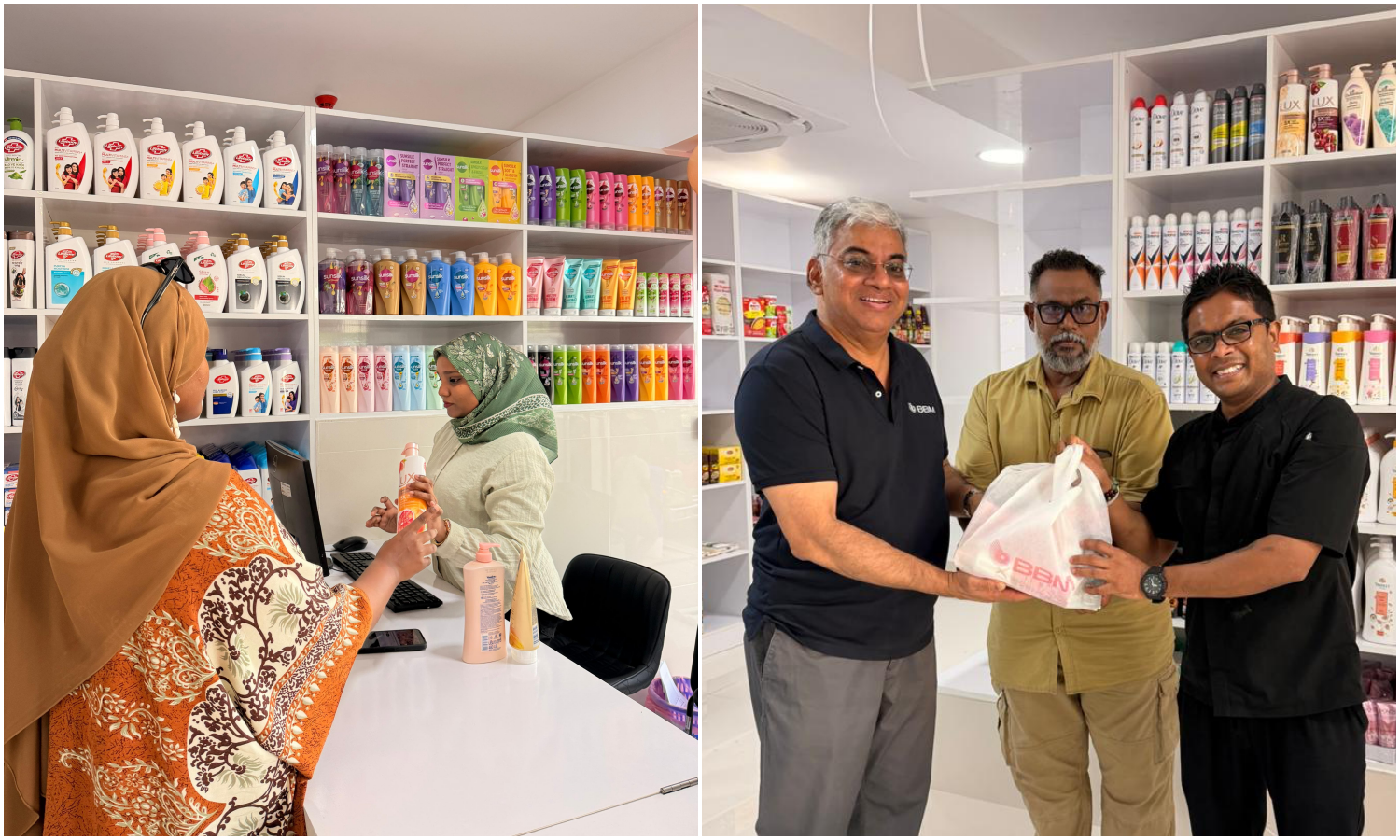
Bestbuy Maldives (BBM) opened a new wholesale store in Hulhumalé Phase 2 on Monday.
The outlet is located on the ground floor of Lot 20286, Nirolhu Magu, and is intended to improve access to BBM’s imported goods for residents of Hulhumalé Phase 2 and for businesses operating in the area.
According to the company, the opening forms part of its plan to expand services closer to customers in line with population growth in Hulhumalé.
With the opening of the new store, BBM’s full range of imported and distributed products will be available at the Hulhumalé Phase 2 location. These include consumer goods from international brands such as Lifebuoy, Vaseline and Unilever.
The store will also stock wholesale food products from brands including Daily, Cavin’s and Redman.
BBM has supplied goods to resorts, hotels and retail outlets across the Maldives for several years.
Action
Ataraxis Grand & Spa hosts integrated work-and-dive corporate retreat in Fuvahmulah
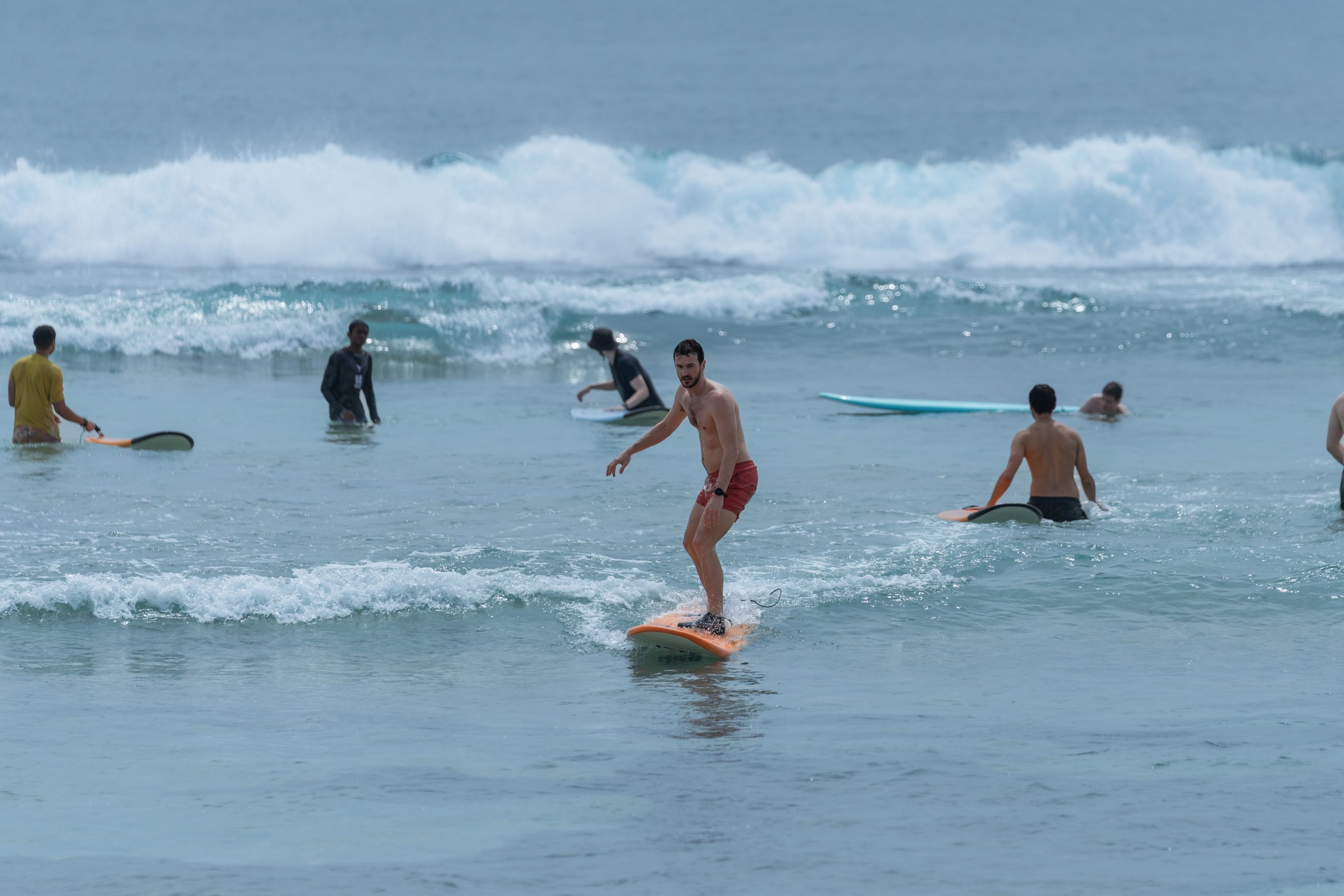
Ataraxis Grand & Spa recently hosted a week-long, closed corporate offsite in Fuvahmulah for a US-based artificial intelligence company, highlighting the island’s growing suitability for integrated work-and-experience retreats. The retreat brought a group of 36 international professionals to the property, which was reserved exclusively for the programme.
Designed as a private company offsite, the stay combined structured daily work sessions with guided diving and beginner-friendly surf experiences, creating a balanced format that blended focused collaboration with physical reset.
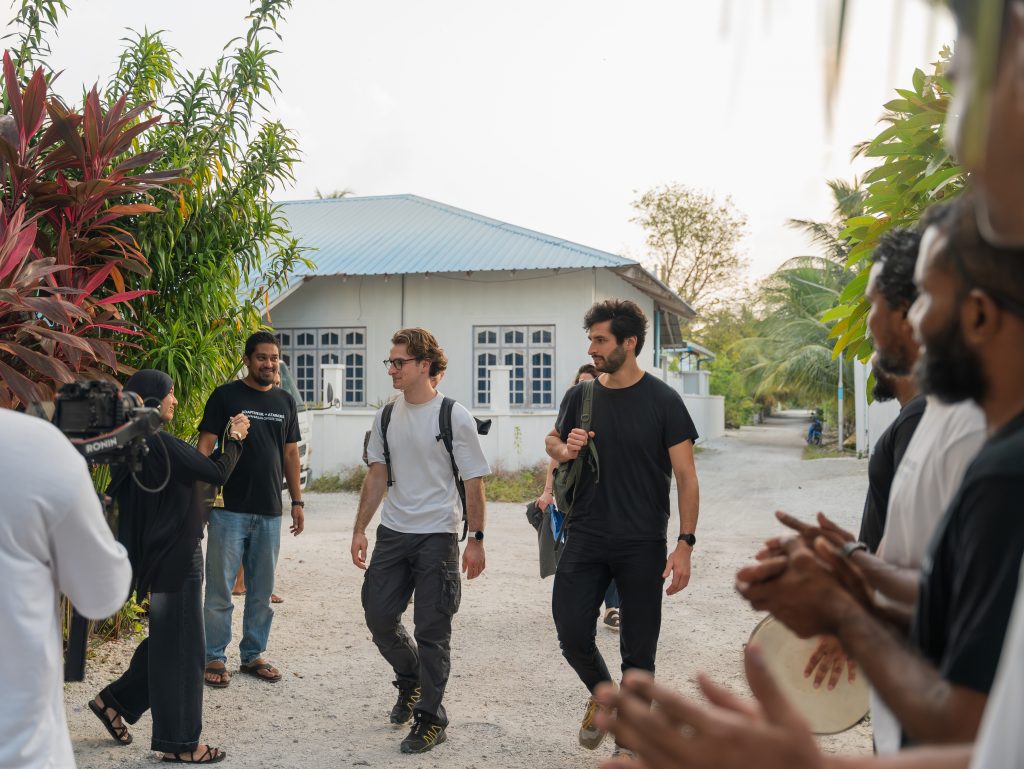
A notable component of the programme was dive training and certification. During the retreat, 17 participants completed their Open Water certification, while a further six undertook the Advanced Open Water course, with training and dives scheduled alongside work sessions as part of the integrated itinerary.
Throughout the week, participants worked on-site using dedicated shared spaces supported by reliable high-speed internet, allowing meetings, informal collaboration and scheduled activities to take place within a single, uninterrupted environment. This setup enabled teams to move seamlessly between work periods and organised ocean activities without leaving the property.
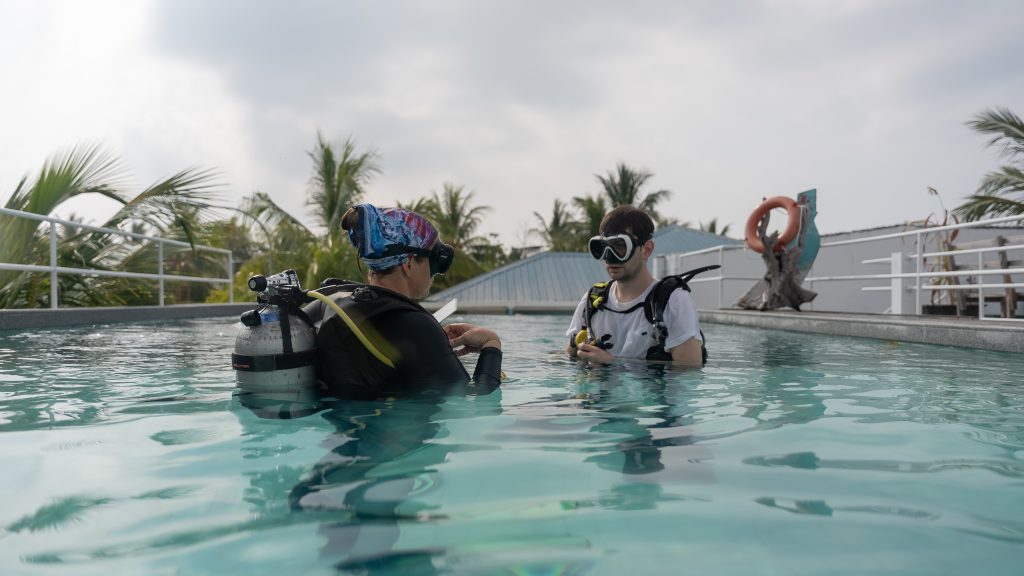
Fuvahmulah’s natural and operational advantages formed a key part of the retreat’s appeal. As one of the Maldives’ largest inhabited islands, it offers immediate access to pelagic dive sites, internationally recognised shark diving and surf breaks suitable for instruction, alongside the infrastructure required to support extended group stays.
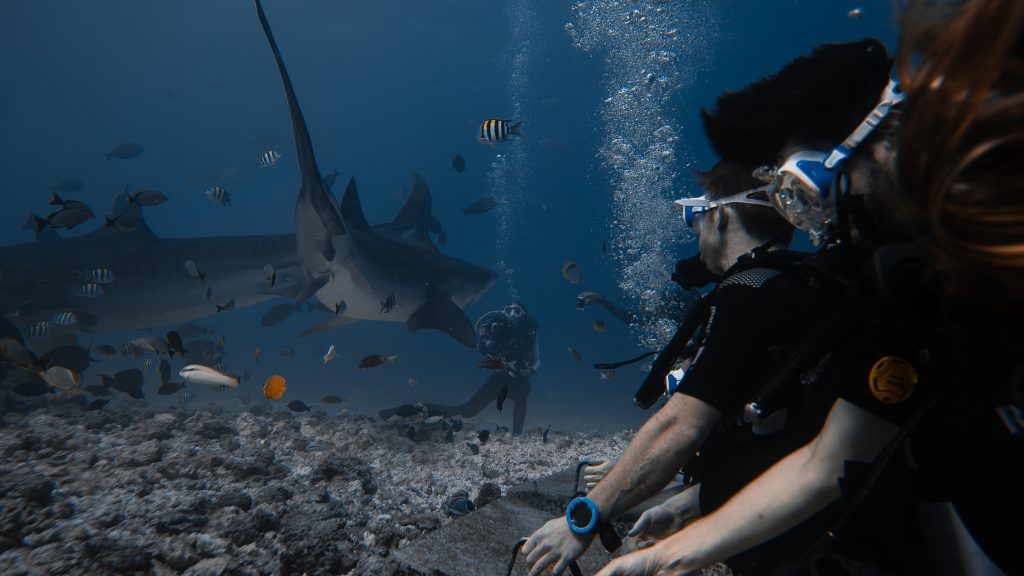
The offsite reflects a growing preference among technology and knowledge-sector teams for small-scale retreats that prioritise concentrated work environments and team cohesion over traditional conference formats. Such programmes typically involve longer stays and higher per-capita spend, aligning with sustainable, quality-driven tourism models.
The retreat also demonstrates how locally operated properties such as Ataraxis Grand & Spa are supporting this shift by delivering unified environments where accommodation, workspaces, connectivity and curated experiences operate as a single programme rather than separate services.
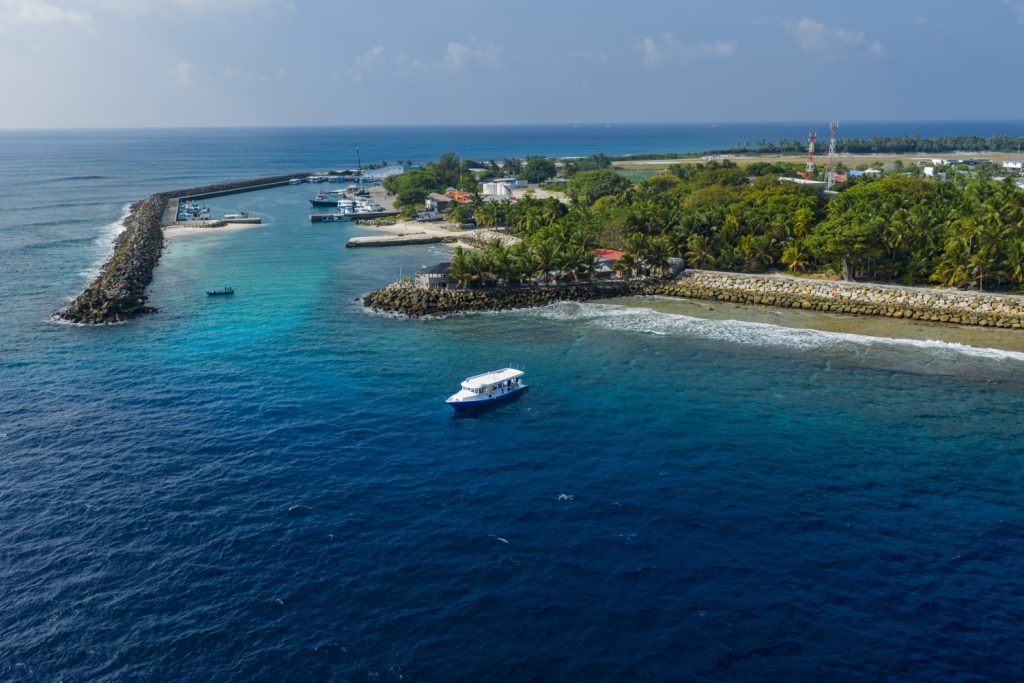
As organisations continue to explore alternative formats for strategy sessions, team resets and creative offsites, Ataraxis Grand & Spa’s experience positions Fuvahmulah as an increasingly viable destination for integrated corporate retreats.
Ataraxis Grand & Spa offers work-and-dive retreat programmes in Fuvahmulah that combine accommodation, dedicated workspaces, high-speed connectivity and organised diving and surfing.
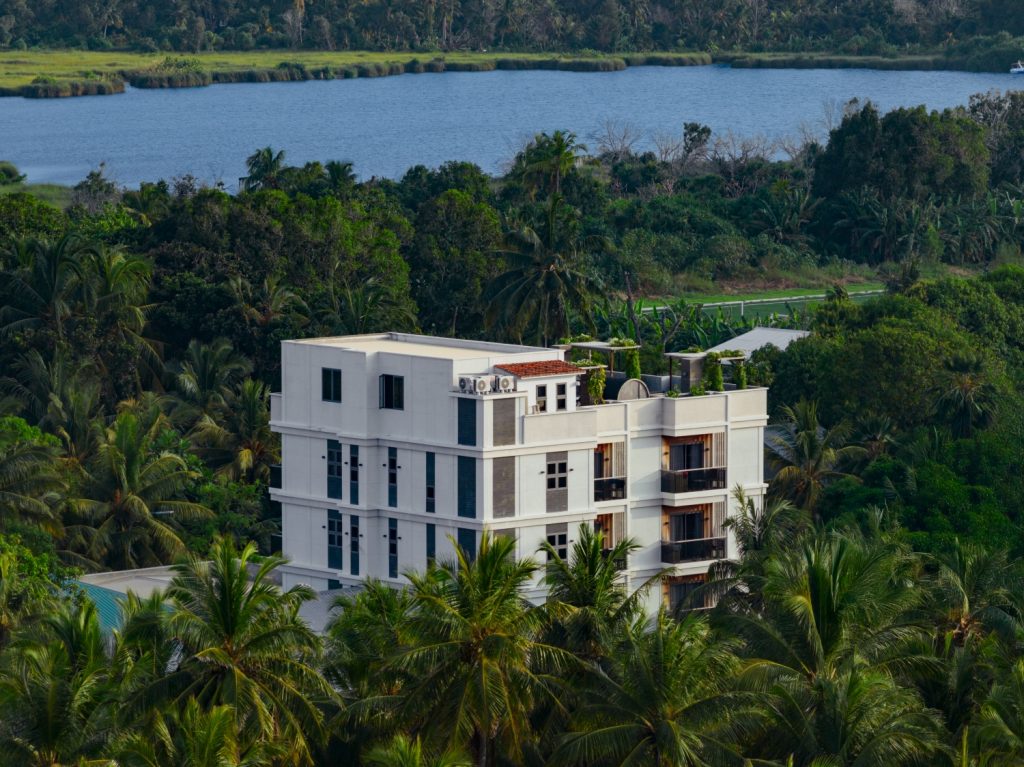
Further information on retreat formats and dive-inclusive stays is available via the Ataraxis Grand & Spa website.
-

 Entertainment1 week ago
Entertainment1 week ago‘One festival, every sense’: Fari Islands Festival announces August 2026 return
-
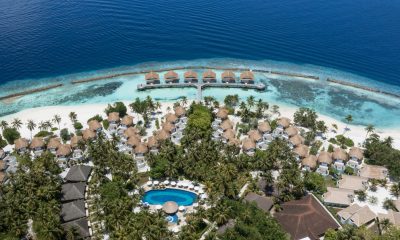
 Awards1 week ago
Awards1 week agoBandos Maldives earns Booking.com Traveller Review Award 2026
-
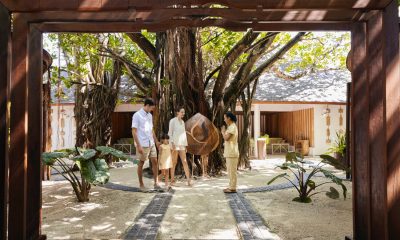
 Featured1 week ago
Featured1 week agoAncient banyan tree anchors spiritual experiences at Machchafushi Island Resort
-
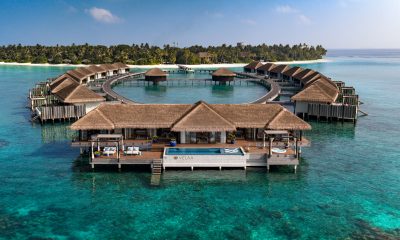
 News1 week ago
News1 week agoRefined overwater vision: Velaa Private Island’s upgraded Ocean Pool House
-

 Cooking7 days ago
Cooking7 days agoA spring of flavours: Nowruz dining series at JW Marriott Maldives Resort & Spa
-
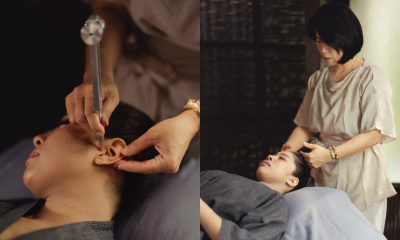
 Featured1 week ago
Featured1 week agoYoko Kawaguchi to lead holistic wellness residency at Vakkaru Maldives
-

 News5 days ago
News5 days agoPulse Hotels & Resorts unveils Aura Maldives, a mindful luxury sanctuary
-

 Love1 week ago
Love1 week agoFushifaru Maldives combines romance and lunar new year traditions in guest programme











